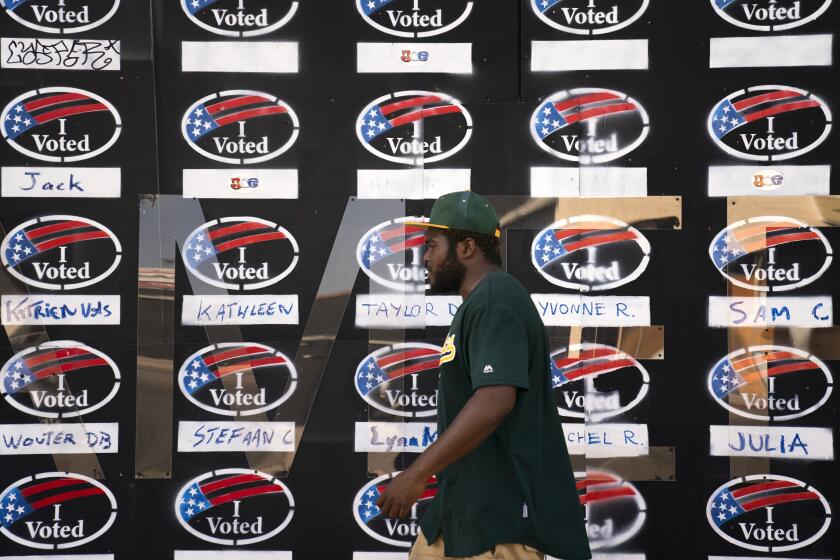L.A. Unified, union OK system of evaluating principals

For the first time, Los Angeles public school principals will be evaluated under a new system that includes student achievement as one measure of administrators’ effectiveness.
Los Angeles schools Supt. John Deasy announced the one-year agreement with the administrators’ union Tuesday, calling it a “remarkable breakthrough.”
The pact, which covers Los Angeles Unified’s 1,500 principals and assistant principals, is aimed at meeting a Dec. 4 court-ordered deadline to begin using student achievement data to assess administrators and teachers.
The district is continuing to negotiate with the teachers union, which so far has vehemently rejected the use of test scores in instructors’ performance reviews. The union has said that standardized tests are too unreliable for high-stakes personnel decisions, including firing and promoting teachers.
Disagreement over a new evaluation system in Chicago was one flash point that led more than 26,000 teachers to walk off their jobs this week.
Judith Perez, president of the 2,300-member Associated Administrators of Los Angeles, was measured in her reaction, saying that although she was pleased with the agreement, its ultimate result “remains to be seen.”
The one-year time period, she said, will give both sides time to work out details of the system while complying with the court order, which was issued in June by Los Angeles County Superior Court Judge James C. Chalfant. Chalfant ruled that a 41-year-old state law, known as the Stull Act, requires evaluations to include evidence of how well educators help students learn state and district academic standards as determined in part by test scores.
Under the agreement, measures of student performance could include the California standardized tests, district assessments, Advanced Placement course enrollment and passing rates, class grades and other indicators, Perez said.
L.A. Unified’s system that charts students’ academic achievement using three years of test scores, known as Academic Growth over Time, has been the most controversial.
The agreement does not specify how much the student achievement data should count in the evaluations, saying it will be “limited” and not the “sole, or primary, or controlling factor.”
Other data that could be used to evaluate an administrator’s performance include attendance, graduation, dropout and suspension rates and how rapidly students are learning English.
“We believe this will give a broad picture of the school and help administrators as school leaders in working with teachers,” Perez said.
She added that a critical factor in making the program work will be districtwide training of administrators in interpreting and using the data in evaluations. Administrators will also need guidance on how to improve their performance, she said.
“We all want it to work,” she said.
L.A. Unified has a voluntary evaluation program underway in 100 schools, a program that Deasy wants to expand districtwide. But school board member Steve Zimmer objected to the system because it uses student test scores as the sole way to determine students’ progress. He had proposed that other measures, including tests developed by teachers, also should be used.
The board had been expected to discuss Zimmer’s proposal Tuesday but he decided to delay the debate. Zimmer said other measures would be “a better and fairer” approach.
Board member Tamar Galatzan said the district has already spent two years developing and testing its system and that the time to object “is long past.”
More to Read
Sign up for Essential California
The most important California stories and recommendations in your inbox every morning.
You may occasionally receive promotional content from the Los Angeles Times.











